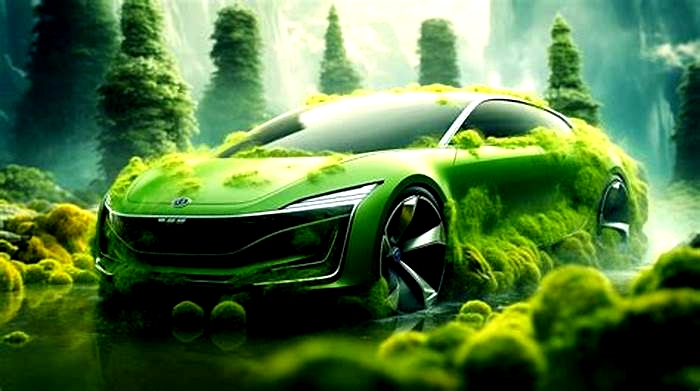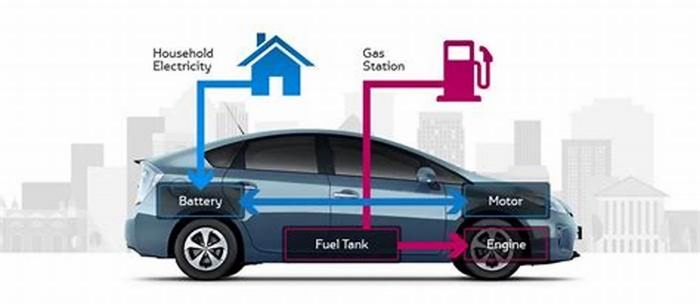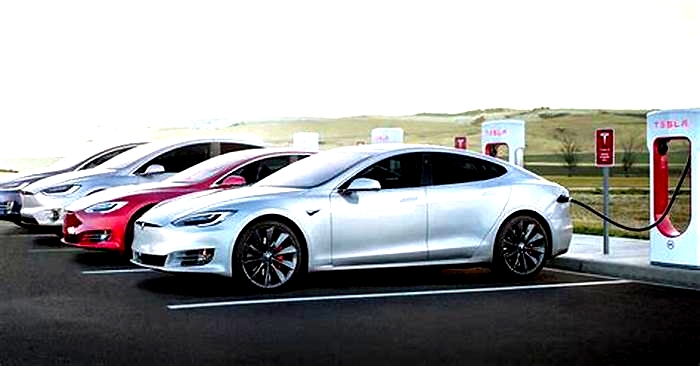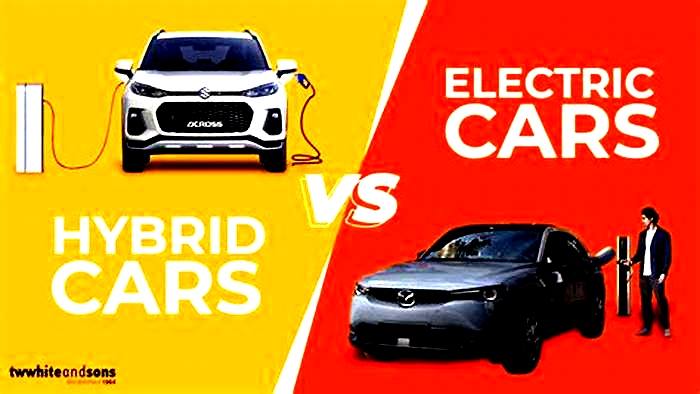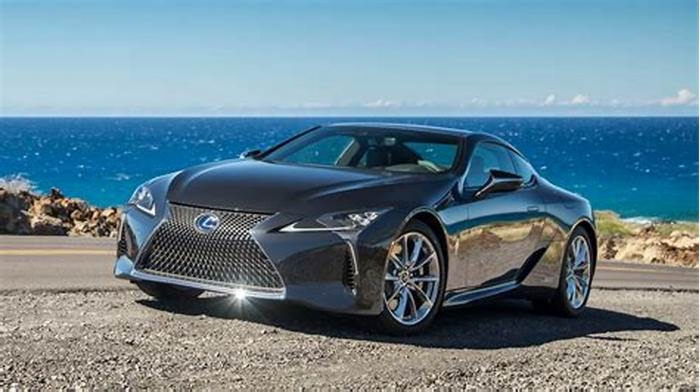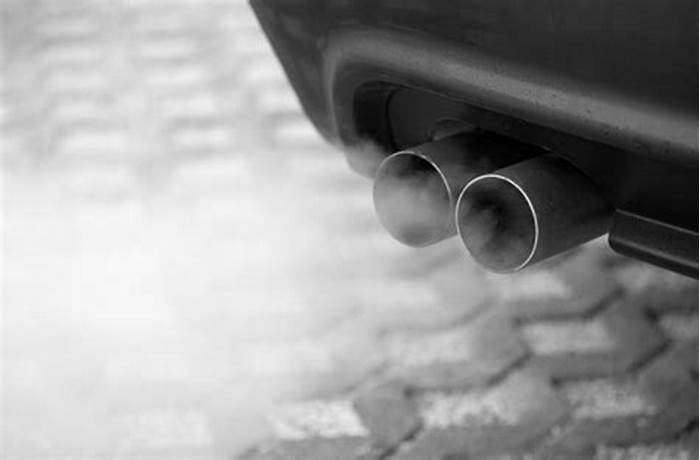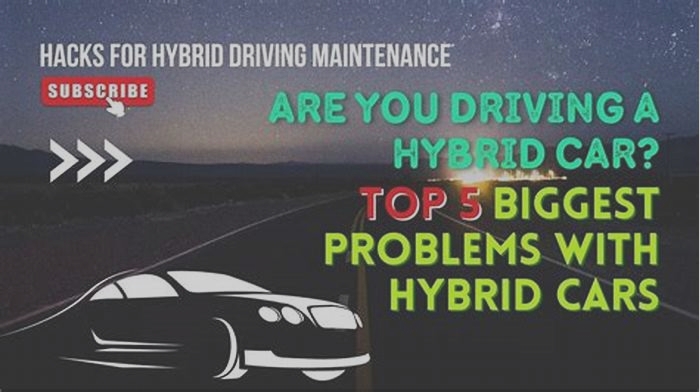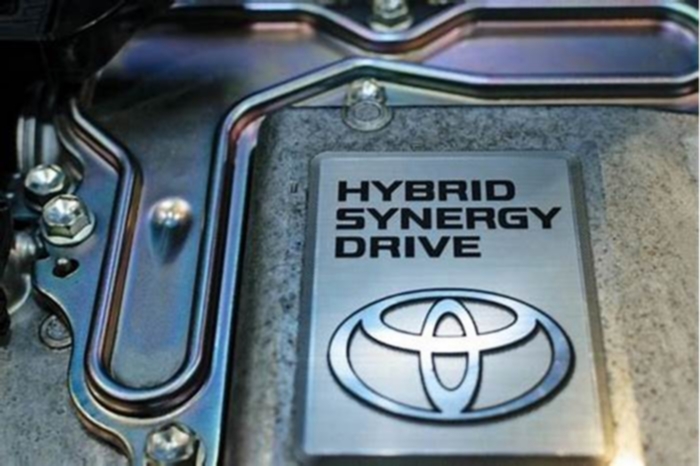Why not to buy hybrid cars
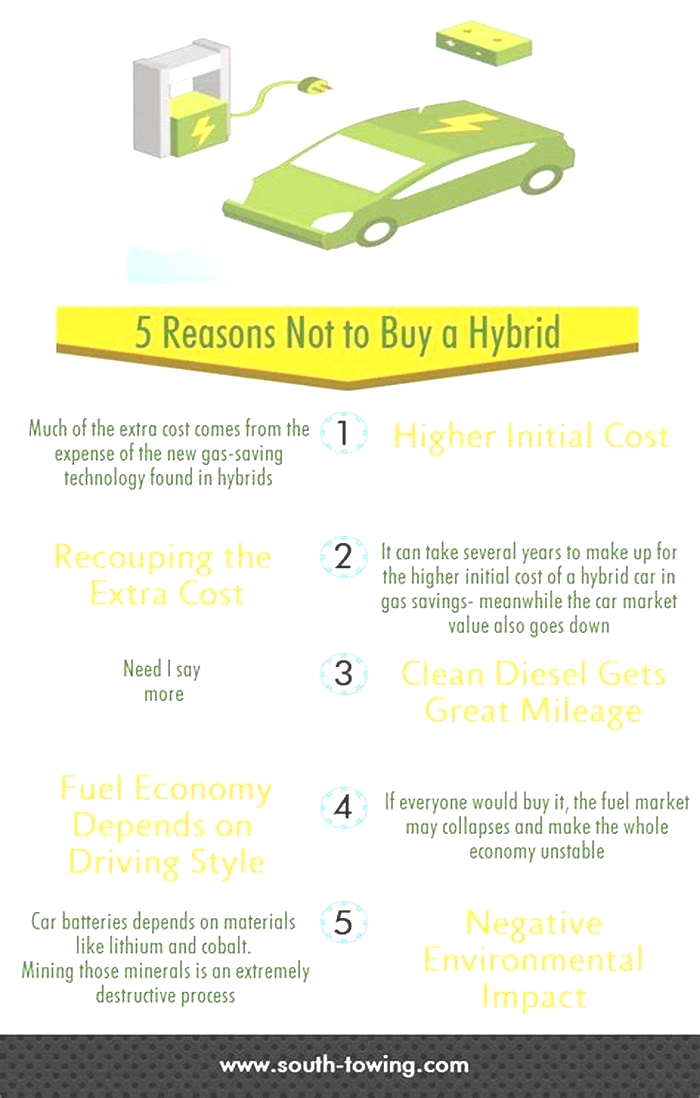
Reasons why you should not buy a hybrid car
You have probably thought of getting a hybrid car but are hesitant because of the cost and maintenance. While the world continuously shifts to more utilization of green energy and promoting sustainable energy use, very little is known of hybrid cars even though they have been on the market since the late 90s.
Hybrid cars are continuously going through improvements, and they are increasingly becoming commonplace. With that said, is purchasing one a good idea? Well, it turns out that they might not necessarily be the best choice for you, depending on various circumstances that you will note in this article.
Before continuing on in reading this article, keep in mind that I got the information from motorbeast, as well as additional sources on hybrid cars and how they work.
First question: do you even need one?
Aside from the question of whether you even need a car in the first place, this becomes even more important when considering whether the hybrid car purchase makes any sense for you. Some of the questions to ask include:
- Are you driving in the countryside or the city?
- What is your purpose of using the car?
- How many passengers will use the car, and who?
When you consider these questions, you might realize you do not need the car anyway you will sort out your needs just as easily when you use public transport.
Hybrid cars are expensive
Okay, it is understandable that cars do not come cheap, regardless of the fuel source they use. However, hybrid cars are much more expensive compared to your usual gasoline-powered car; in fact, hybrid versions will set you back several thousands of dollars more than the conventional version of said car.
The bulk of the extra costs are a result of the use of gas-saving technology, which only hybrids will have. Note though, that the price difference is much less than it initially was, especially for the more-popular models.
You might assume that because you are not purchasing a conventional car though, that means you are saving your money on fuel costs, right? Perhaps not that brings us to:
You will need to consider your ability to recoup the cost

Many owners of hybrid cars will attempt to justify their purchase cost of the car by saying that they will save much more in fuel savings. The truth is, that the plan will take much longer than what most owners assume it to be.
In fact, there are many cases where it takes the owner a number of years to recover the money they spent on buying a hybrid car, especially in gas savings. A classic example would be the summer of 2008, where people calculated the money they would be saving in gas costs by buying a hybrid car. Even though the federal government provided tax incentives and tax credits to encourage people and state governments to purchase new hybrids, the benefits ended some time later and left people still trying to recoup the initial cost.
You are unsure if the hybrid will hold its value
Fine, you may see from the above point that the price of buying and maintaining a hybrid car is above the average, but the other problem is that pesky depreciation value: since they are brand new when you buy them, their depreciation can be quite high even when compared to the conventional car. In addition, the incentives you might get now might not continue indefinitely.
What this means is that when you decide to resell the car later, you will not be able to resell it at a premium price compared to the value it was when you bought it.
Are you sure you are saving your money?

Bringing it back to the second point, it is not worth it buying a hybrid model for economic reasons. The saving of fuel will depend more on your mileage, as well as the model of the car itself so even in the best scenario, you will need a minimum of 5 years before you can recover the initial cost.
In addition to that, there is also the question of emissions. As the hybrid vehicle may not have issues with releasing emissions, they will need alternative power sources so you need to consider the installation of mechanisms that allow you to recharge your battery and the engine if oil is not going to cut it. That is an extra cost on your end, and you might not be saving money anyway.
Situations where you can use it
A hybrid car can really handle any kind of driving scenario without much issue. Whether it is driving in the city, cruising on the highway, or getting a minivan for family trips, there is a hybrid car that can sort you out in most cases.
However, the situation is different with them if you need to haul items or tow anything. The major problem that hybrids have is their lack of sufficient power to move the car, a load of items, and the people inside it, all at the same time. While some models can be useful as tiny campers or pulling a small trailer for a few rides, they really cannot do much.
An example could be the Toyota Prius hybrid, which was released in 2016. It was considered as a groundbreaking model because of its improvements, but the maximum weight it can handle is only 725 kilograms (1600 lbs.), something that is considered on the low end of the lightest campers you will find.
What are the alternatives available?
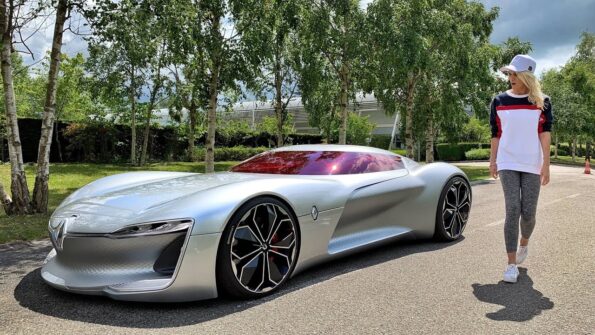
The technology behind hybrid cars is great, but it is not the only one that can save the environment. There are car models out there that use NLG (natural liquid gas) or LPG (liquid petroleum gas) as a fuel source.
Moreover, modern diesel cars will use cleanerfuel compared to older models, and there are other emerging fuel sources like biodiesel and ethanol blends.
Conclusion
While buying a hybrid car may seem like a good idea, it is not always the best of choices, and sometimes you are better off without one. Make sure to think carefully about it, and consider the options you have before spending on one.
Related Categories:
auto,
ReviewsWhy Hybrid Vehicles Are a Smart Choice Right Now
Hybrid technology has generally meant comparatively higher sticker prices, though fuel savings can defray costs over time. Todays average hybrid costs about $1,700 more, but the Ford Maverick pickup and Lexus NX SUV hybrids actually have lower sticker prices than gas-only versions. The new Lexus RX Hybrid costs the same as a comparably equipped non-hybrid.
In 2015 CR calculated that most hybrids took eight years to pay for themselves through fuel savings, with some, including the 2015 Volkswagen Jetta Hybrid and Lexus RX450h, taking more than a decade. Today, improved technology and higher gas prices mean the average payback is four years with gas at $3.35 a gallon and 12,000 miles driven a year. At $3 a gallon, the payback period increases to five years. The more miles driven, the quicker the payback.
You may also save money on repairs and maintenance. Case in point: The Prius is often in the top spot in our reliability surveys. A hybrids regenerative brakes create less wear and tear, so braking components can last longer, too. Its true that replacing a hybrid battery can be a big expense, costing on average around $7,400, according to RepairPal, but our surveys show such replacements are rare. Hybrid technology has been very reliable in our studies, Fisher says.
Hybrid owners tell us in surveys that theyd buy their same car again, and 91 percent of the hybrids weve tested are recommended by CR compared with 55 percent for all tested models.
CarBuzz
Hybrid cars are becoming increasingly popular, and they can be an excellent intermediate step for those who want to explore electrification without buying a fully electric vehicle yet. With several types of hybrid car available, from mild hybrid to plug-in hybrid, there is a wide variety of choices available no matter what your lifestyle and driving needs.
But what are the pros and cons of hybrids? When does a hybrid suit your lifestyle, and when is it simply unnecessary? To answer these questions, we first need to understand the basics of hybrids.
Types of Hybrid Vehicles
There are three main varieties of hybrid cars currently available on the market:
- Mild hybrid cars are the newest type of hybrid on the market and are rapidly gaining in popularity due to the fact that many cars you don't think of as hybrids use this type of powertrain. The BMW M340i, for example, supports its inline six with mild hybrid propulsion. Their main source of power is their traditional internal combustion engine. The electric motor (which has a battery charged via regenerative braking and does not need plugging in) exclusively serves the purpose of improving fuel economy by assisting in pulling away from a standstill, coasting, and using the 48-volt hybrid system to power ancillaries (air-con, infotainment, etc) and remove this load from the combustion engine. A mild hybrid vehicle is as close as you can get to a traditional ICE car while still enjoying the improved fuel economy of a hybrid, so you get the best of both worlds.
- Full (self-charging) hybrids also use regenerative braking to charge the electric motor, but unlike a mild hybrid, they can drive for a short distance on electric power alone, which makes them an ideal candidate for a prospective buyer with a short, city-based commute. The regular Toyota Prius is an example of this type of hybrid.
- Plug-in hybrids, as their name suggests, can be plugged into an external electric power source and charged to function as a hybrid, but they can also utilize regenerative braking, coasting, and charging via ICE. Thanks to their larger battery, they have the ability to utilize for full-electric-mode driving.
Some Pros And Cons Of Hybrids
Like any other type of vehicle, hybrid cars also have some drawbacks; despite being hyped as the optimal choice to future-proof your garage, a hybrid car may not be well suited for everyone. Here are some pros and cons of hybrid vehicles that will help you decide on your next purchase:
PRO: Better Fuel Economy and Lower Running Costs
The first thing that comes to mind when thinking about the advantages of choosing a hybrid car is fuel savings. With fuel costs rising, for many prospective car buyers, having a fuel-efficient vehicle is high on the list of priorities. Thanks to the presence of the battery providing better fuel efficiency than you'd normally find in traditional gas-powered cars, a self-charging hybrid (such as the Toyota Corolla Hybrid) can easily achieve 50 mpg, and a plug-in hybrid (such as the Hyundai Tucson PHEV) can push that figure up to 80 MPGe. This is especially true if you have a short, city-based commute at low speeds since many hybrid vehicles are capable of fully electric driving for shorter trips, making your car even more fuel-efficient overall.
CON: More Expensive Up-Front Than Traditional, Gas-Powered Cars
The running and fueling costs of a hybrid vehicle may be lower than those of a conventional car, but there almost definitely will be a higher upfront cost. Even a used hybrid car will typically cost more than its internal combustion engine-only counterparts, thanks to the high cost of the rare metals needed for battery technology. Thankfully, this higher upfront cost will likely be offset after a few years of ownership since you'll save money in the long run when it comes to fuel and maintenance.
This will change as hybrid cars proliferate automakers' lineups as the default option, and like all technology, the more widely it becomes available, the more affordable it becomes.
PRO: Avoid EV Range Anxiety
The range anxiety issue that typically plagues electric car users is eliminated when driving a hybrid vehicle: no matter what your driving habits, from work commutes to long-distance road trips, you can always rely on being able to fill up your car with gas as you would do with conventional cars. Plug-in hybrids even give you the best of both worlds. If you live within a short commute of work, you can easily live an EV lifestyle, relying only on gas when you aren't able to charge or need to drive long distances.
CON: Needs Both Charging and Refueling
Of course, when away from home, filling up at a gas station will get you from A to B in a pinch, but for everyday use, it is important not to neglect the charging aspect; if the battery in a plug-in hybrid is left uncharged, the benefit of higher fuel efficiency is negated, and the vehicle becomes a heavier, less efficient gas-powered car, often with hampered performance. This has become prevalent where buyers have bought PHEVs for the tax benefits and driven them around on gas power alone.
PRO: Well Suited to City Driving
If your driving habits typically involve short city journeys, then a hybrid could be the perfect choice for you: with its potential for all-electric driving, lower tailpipe emissions, and lower maintenance costs hybrids can make excellent city runabouts. At low speeds and with low throttle loads, the electric motors handle most of your propulsion needs. Combustion cars typically at their least efficient when idling and creeping in traffic, and it's in these circumstances that a hybrid excels, switching off the combustion engine and using its electric reserves.
CON: Less Effective on Long-Distance Journeys
Long-distance drivers, on the other hand, might struggle more with hybrid ownership. Hybrids are not always aimed at being more efficient at higher speeds, so their benefit at highway speeds is often entirely negated. We won't say they're worse than a non-hybrid, but the price you pay may not be rewarded if this is the type of driving you do the most.
PRO: Performance Benefits
Hybrids are traditionally seen as environmentally friendly, often assumed to mean reduced performance. However, the addition of electrical augmentation actually means the potential for enhanced performance. Electricity produces more efficient horsepower and greater torque than a combustion motor right from a single rpm. Electric motors can be used as torque-fill to mitigate turbo lag and enhance performance when the torque from a combustion motor is weak. The new Toyota Prus, for example, is as quick in a straight line as a GR86.
CON: Battery Life Expectancy
All batteries lose capacity and start to degrade with regular use, and the battery pack of a hybrid car is no exception: if you have owned your car for a few years or bought a used vehicle, you may start noticing the battery lasting less and less in between charges. Battery tech is getting better, and long manufacturer warranties do ensure replacement in most circumstances, but as more hybrids populate the used car market, this is still something to be aware of.
Outside of warranty, replacement batteries are notoriously expensive. The upside is that a hybrid can still operate as a normal gas car when the battery is no longer effective, meaning it isn't bricked entirely.
PRO: Less Maintenance Needed
Battery replacements aside, hybrid cars may require less day-to-day maintenance than conventional vehicles: in a car with a regenerative braking system, the brake pads will usually wear down at a lower rate, requiring less frequent replacement. The engines often strain less, too, and runs less per 100 miles when electric driving is a factor, again reducing wear.
CON: Higher Repair Costs
The routine maintenance of a hybrid car is slightly different from that of a conventional ICE-only vehicle, and not all mechanics specialize in hybrid cars. While typical maintenance of the engine remains unchanged, and the battery and electric motors don't require a lot of maintenance in general, when something goes wrong with the hybrid systems, a regular mechanic may not be able to do what needs to be done. In these instances, higher repair costs due to specialist workshops are a reality, or at least workshops where mechanics have undergone hybrid-specific training.
PRO: Lower Emissions
And lastly, onto the environmental aspect: with the aid of electric power and more efficient fuel consumption, hybrids will almost always produce lower tailpipe emissions than exclusively gas-powered cars, so if emissions are an important factor to you, a hybrid car might just be the right choice.
CON: Still Uses Gas
Whether you're an electric evangelist or a combustion die-hard, the science is impossible to refute that an electric vehicle is a far more efficient means of propulsion than burning gasoline to power the wheels. While there is no such thing as a zero-emissions vehicle, hybrid vehicles get closer to that mark. Still, they are not as efficient as electric cars, and for some people, the concept of still using gas is a big no. However, because of their smaller batteries, an argument could be made that they have a lesser environmental impact at a supply chain level.
Yeah, we'll admit this isn't the strongest con out there, but for some, any gas at all is a negative.

